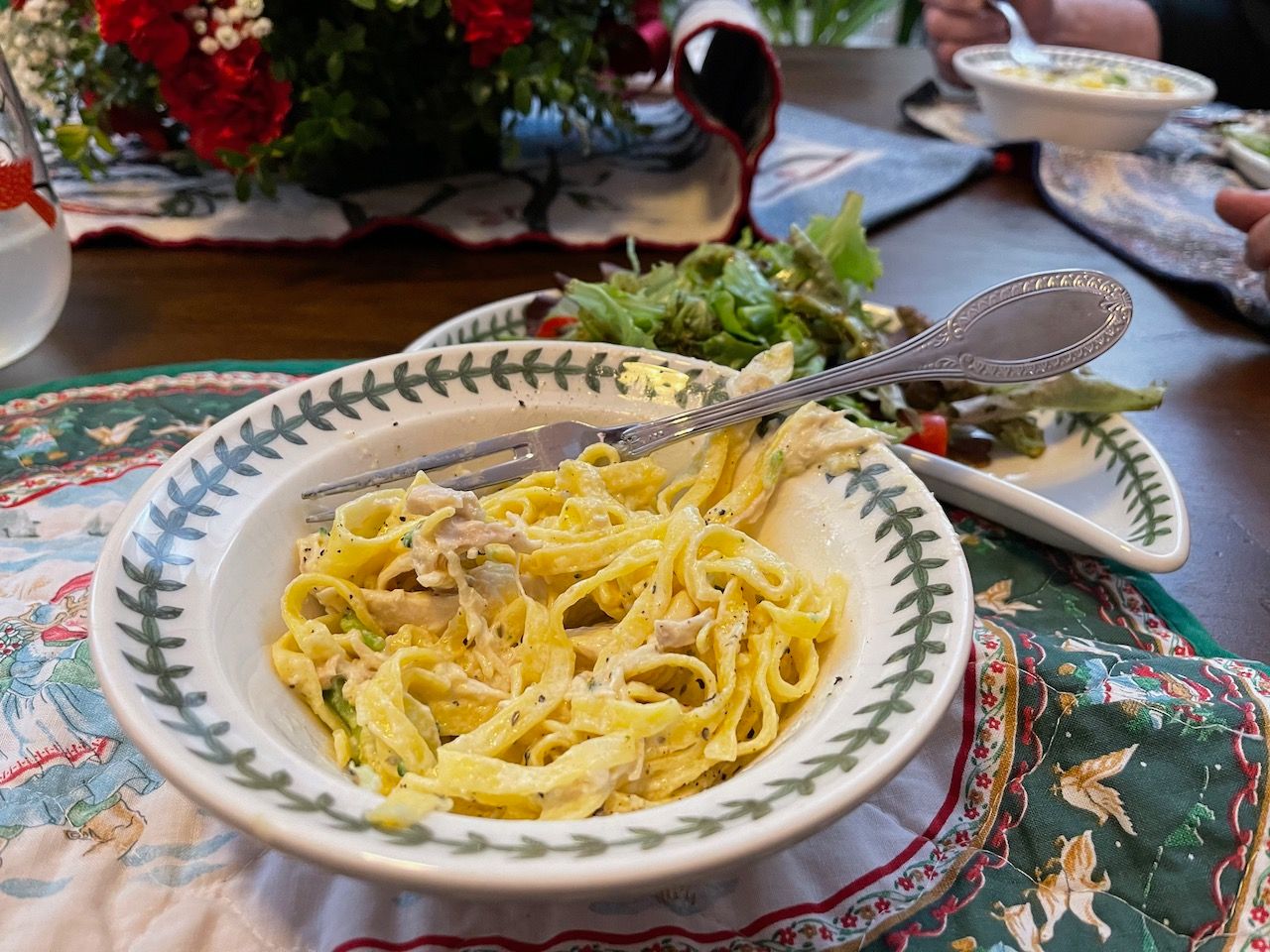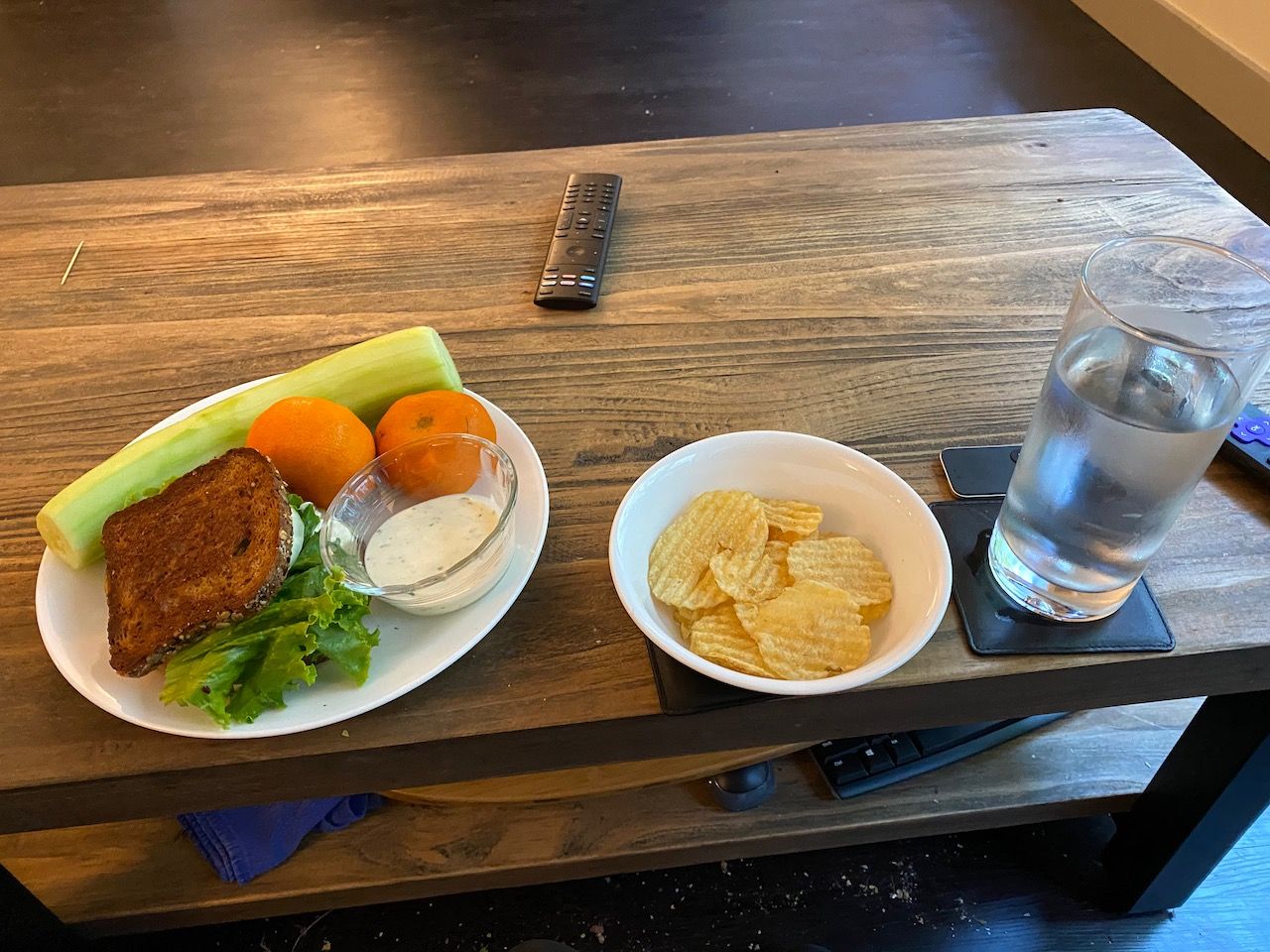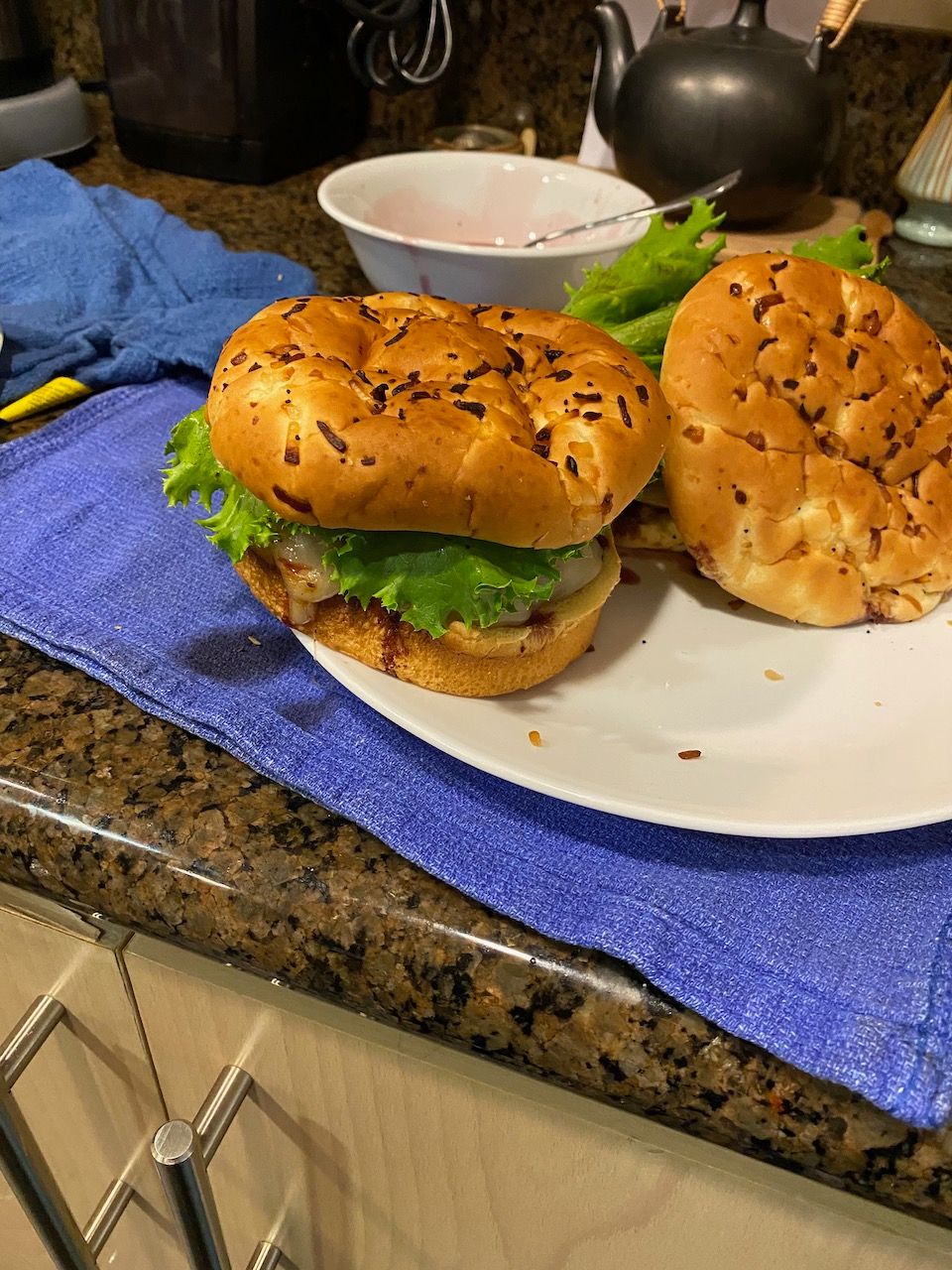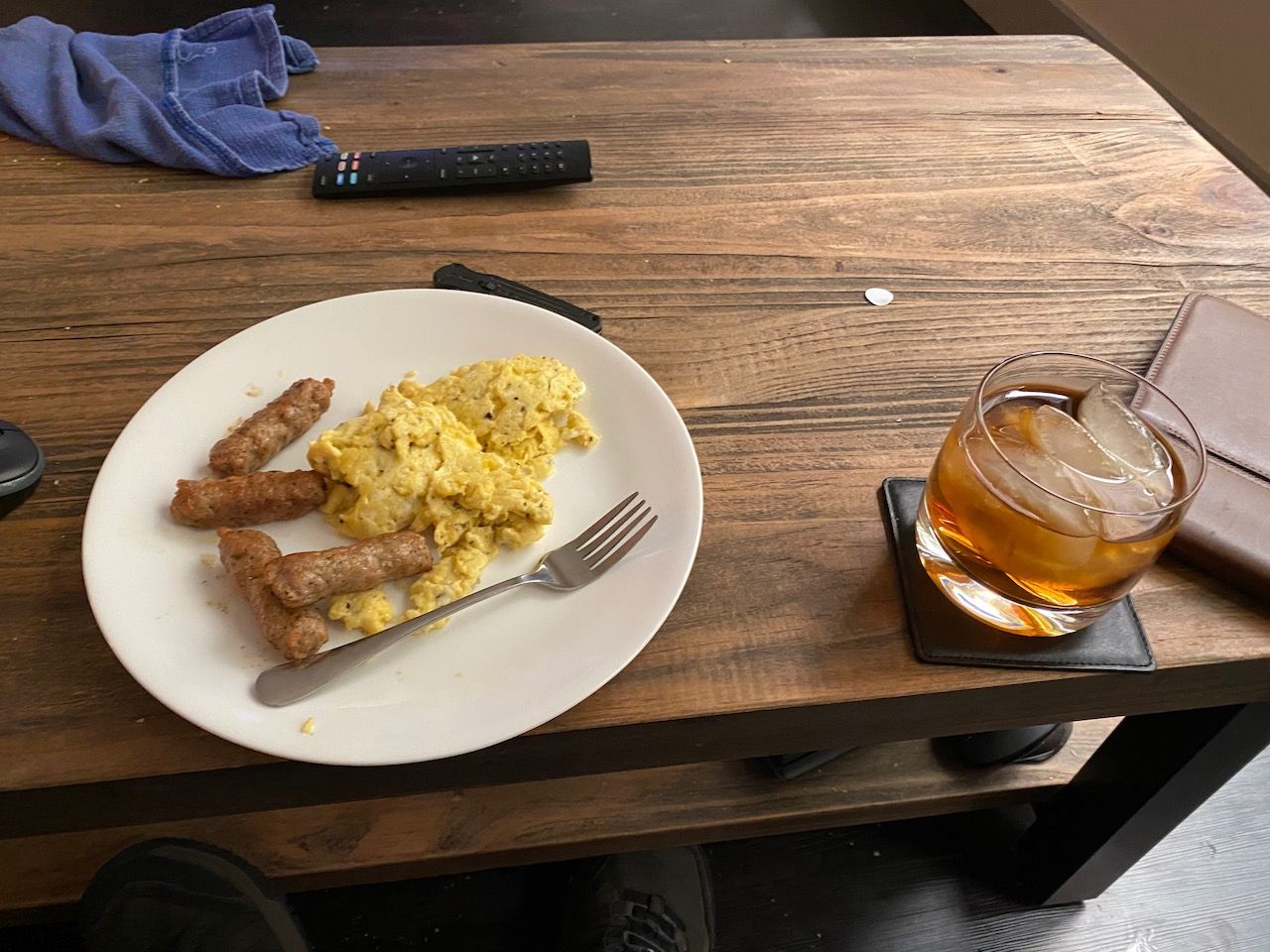Learning Cooking from Scratch During the Quarantine: Part 1
The Start
I learned to cook last year during the quarantine. I had never really cooked much. Once I surprised a good friend of mine who had come over to visit. They said that I had no food at all in my fridge. Which was inaccurate. I had stuff for nachos and peanut butter sandwiches. I kept mostly frozen food and sandwich fixings because I went so long without cooking that all of my food would go bad. Eventually I made my peace with that; I didn’t really buy perishable groceries unless I was planning on eating them quickly. I would still eat some amount of fresh fruit, but mostly I got takeout and delivery every day. That meant an inordinate amount of money every month eating out, which I mostly didn’t keep track of because the number was troubling.
I say all of this not because I’m necessarily proud or ashamed of it, but as a way of demonstrating: I really didn’t cook at all. The only kitchen stuff I had was: one pot; one pan; the nicest George Foreman grill in the world (adjustable temperature and removable washable ceramic plates, although I never used it); a set of mixing bowls (I mostly used those to put curry and soup in from the local Thai place, or food from the local Chinese place)l; and a chef’s knife and paring knife that were housewarming gifts from my family. I might have had a serving spoon of some sort. The lack of cookware was by design. In the past I had cookware that I never used, and I don't like owning things that I don't use.
However, I lived in the heart of a major city in the Pacific NW. Amazing food is plentiful. Delivery is ubiquitous, although it wasn't when I moved here a decade ago. I was never wanting for amazing options anywhere. But last year I decided to focus more on my health. This was a New Year’s resolution for 2020. I was being pretty lackadaisical about my cooking and such until the lockdown happened. Then in February/March I stopped getting as much delivery. The cost was pretty high at the time. Mostly in the past I was going out for lunch and listening to podcasts while I ate in the restaurant. Then all the restaurants closed down. Once I was having to do delivery every meal, I realized how huge a surcharge there is. When you break it out, it’s around 40%-60%. That’s including the amount the restaurant marks up their food to deal with the flat 20% fee the food delivery platform charges, the 15% service fee, and the 15%-20% tip.
First I started with some slow cooker recipes that I found online. A couple of good friends of mine swore by slow cookers for meal prep. I made some Chicken Alfredo with fresh parmesan. It was delicious, and that recipe, although slightly modified, is still something I make semi-regularly.

Then I made beef tips, which is a recipe from my mother. I also stopped making weak sandwiches, when pan-fried club sandwiches with two types of cheese are so good. Back then I even tried to heat up the meat and cheese on the bread in the pan. I recommend against that these days (you end up burning the bread). Now I tend to heat the cheese and bread up in a microwave, although a toaster oven would be ideal. I rarely want to wait for the preheat though, and a microwave is much easier. You lay the bread out flat in two pieces on your plate, then microwave it until it’s slightly melted. Butter your pan, and heat your bread until it starts to brown, then stack the bread into a sandwich. Let it head for another minute or so, flip it, and finish it on the other side.

Once I got a few recipes under my belt I started looking for other stuff. I saw on Netflix that Good Eats was re-released with updates. My cousin had always recommended Alton Brown so I watched some of those. This led me to learn more about cooking and the science behind it.
The Middle
Once I started to get my slow cooker game down, I tried some other stuff. I tried to make my own pasta. It was delicious. I just used flour and water. However, if you do that then it is incredibly hard to get the dough down to the thickness you want in noodles. The first noodles were so thick that it took around 45 minutes to cook them. I'm not sure how much pasta you cook, but that is too long, especially for fresh pasta (a few minutes should be fine). I found another recipe that was more specific and called for adding eggs. It was amazing and is still something that I make. The prep time, once you do it a few times, isn't too bad either. Maybe 30 minutes to make the dough, then another 30 to make the noodles. I use a knife to make my pasta, instead of a pasta roller, since they are a pain to clean, and large (I don’t have a lot of cabinet storage).

Next I tried my hand at smash burgers. They were good, but I didn't know how to tell when they were done at first, so they tended to be pretty rare. People don't generally tell you how to tell when meat is done. You can constantly check with a thermometer, but that's a pain and a smash burger is so thin, ideally, that it can be hard to get a read without touching the pan (FYI, you can use a thermometer probe, but when the blood starts to come out of the top of the burger it's getting close to medium). I also got into sautéing onions at this point, and even tried making a red wine reduction sauce with the onion juices which is to die for (add some rosemary for a bit of an extra kick). I recommend it.

And I finally got decent with eggs. In the past I made, arguably, the worst eggs in the world. During a fitness kick several years ago I made myself eggs every morning. They were awful. It was like 3 egg whites and two whole eggs for flavoring. Then I cooked them until they were nice and rubbery and added pepper. They were atrocious. I couldn't really enjoy eggs for years after that. The trick is to suck less at cooking. (I kid.) The trick is to keep moving your eggs around and use butter to grease the pan, although olive oil can work too.
I started making scrambled eggs and chicken sausage (frozen) for breakfast. I recommend the sausage with a tiny little bit of maple syrup for dipping. It's delicious, and probably super bad for you, but it’s so good.

I always said that I hated cast iron. It was an argument that I had with some people in my family periodically. I come from a Southern family and cast iron is a cult in that region. My mother insisted that it wasn't that much more work to use then anything else. You just have to be sure you...
- Don’t chip the seasoning.
- Don’t leave it in the water.
- Don’t forget to dry it off on the stove.
- Don’t use anything overly acidic.
- Don’t oil the pan before you put it away.
I eventually got a cast iron pan, and occasionally used it, but that ended up changing (more on that later).
Skills
Here I'm reminded of something I once read: it was about how a certain type of person likes to read non-fiction to learn the absolute most information in the shortest time. However, as a species we don't normally learn like that, at least not large ideas. We learn through parable and metaphor. Its why great works have endured so long. Novels can teach us as much or more than bare bones non-fiction. I try to frame some ideas in anecdotes for this reason.
This seems out of place, but my point is that there are skills you will need as a cook. The best way to learn them is to cook recipes. I wanted to work on my knife skills, which were abysmal when I started. I made sure that I tried to improve as I cut stuff up (chopped, diced, or minced). I also eat a lot of vegetables. I looked up a couple of videos on proper knife skills. Still, I found out recently that I've been holding my knife in my right hand wrong, so I'm going to work on that. I even sharpened all of my knives last night to make it easier. I'm adding a list here of a few things that I think are important, and what types of recipes will allow you to practice them easily. This is necessarily an abridged list, because I'm leaving out all sorts of stuff, and basing it around the implements you're using:
- Knife skills
(home fries, French fries, salads) - Pan skills with meat
(tacos, smash burgers, pan fried steaks) - Pan skills with veggies (
sautéed onions for burgers and others, sautéed garlic, home fries) - Baking skills
(oven fries, oven bacon, baked potato, baked chicken) - Stock pot skills
(stock making, pasta, mashed potatoes) - Rolling pin skills
(homemade pasta, cookies, pie) - Sauce pot skills
(sauces, custard/pudding, hot cocoa)
I had to split this piece into three parts because it was crazy long. I'll see everyone in the next one (the maybe three people that read my blog).